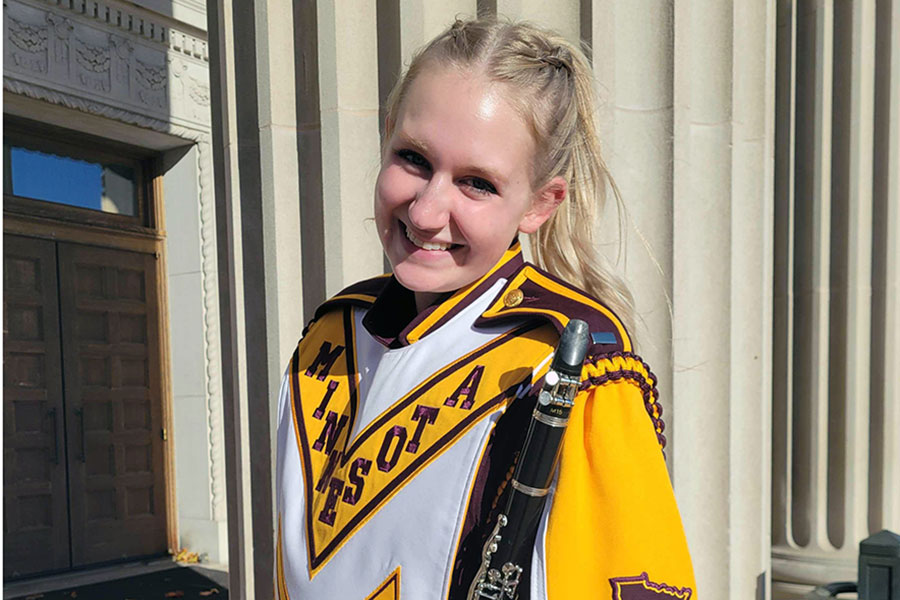
Claire Busse, a graduate this spring in family social science and sociology and a U of M honors student, made the leap from learner to practitioner to researcher earlier this academic year for her honors thesis.
Busse developed a trauma-informed leadership training—incorporating her knowledge about trauma and how it affects people’s minds and bodies—for peer leaders in the University of Minnesota Marching Band.
She began thinking about a training for the band during her first year as a leader in the clarinet section in the fall of 2020. Busse says she learned about trauma-informed approaches in Professor Tai Mendenhall’s class, “Traumatic Stress and Resilience in Vulnerable Families across the Lifespan.”
The course focuses on stressful events and processes that place families at risk—from natural and human-created disasters to social disparities and medical crises. Central to taking a trauma-informed approach is the creation of physical and emotional safety, and collaboration to educate individuals and give them an active role in healing.
“The course helped me understand others' situations during a pandemic school year and led me to find ways to bolster the resilience of my section members,” she says. “After I experienced deep connections and success using a trauma-informed leadership approach, I thought this might be a path to help others.”
Busse says she observed peers in band struggling with how the pandemic had affected their mental health, finances, and families, and heard other leaders attest to struggles of handling hard situations with their section members.
She augmented her observations with research into undergraduate peer leaders in other University student groups and found that they are uniquely positioned to use a trauma-informed leadership approach to assist peers affected by the pandemic and other stress and trauma.
Busse also consulted recent alumni of the band’s leadership team. They helped her create hypothetical situations that were realistic and tailor the information to what leaders would want to know. She presented the training last August, as the band prepared for its 130th season.
Survey results indicated that the training was highly successful. Leaders demonstrated a significant increase in their knowledge, skills, and attitudes about trauma-informed leadership, and they expressed a deep appreciation for the knowledge in the workshop and a desire for more training.
Busse, who plans to pursue a position at a mental health agency or nonprofit in the Twin Cities, says this project gave her a satisfaction that comes with tuning into the needs of her community and creating something that makes a difference for them.
“I am so inspired by every person’s vast resilience in the face of the hard things in life. I know from my studies that resources play such a big role in resilience, and uncovering how student groups can be a resource in building resilience has been so cool.





